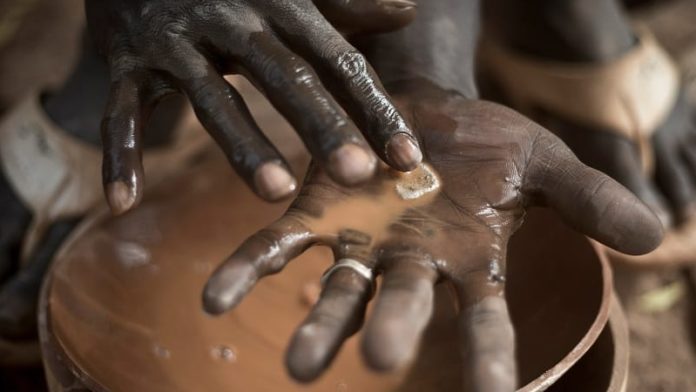
NIGERIA has passed legislation making artisanal gold mining legal in a development the country hopes will generate $500m a year in royalties and taxes and create 250,000 jobs.
Citing Nigerian president Muhammadu Buhari, Reuters said gold buying areas would also be created as well as tax trade of the precious metal. “These operations will help in diversifying our revenue base,” said Buhari.
Nigerian authorities have said illegal mining, prominent in the northwest, has fuelled widespread violence they attribute to “bandits”. Thousands of people have been killed in the region in recent years and swathes of the region are inaccessible. The military is deployed to tackle the insecurity but the conflict shows little sign of ending, said Reuters.
The extra revenues from gold could be a lifeline as the COVID-19 pandemic and resulting global oil price crash cut off much of the state’s income, said the newswire.
The move is part of efforts broadly in Africa to regulate artisanal mining which can result in illegal operations, security breaches and loss of life.
In January, the Democratic Republic of Congo (DRC) created a state-owned monopoly that aims to buy cobalt mined by its rapidly developing artisanal sector. Artisanal output soared when the cobalt price rallied in 2017 and early 2018, providing as much as 20% of the DRC’s production, according to some estimates.
Nigeria’s Buhari said the country has lost a total of $3bn from 2012 to 2018 because of illegal gold mining.
In February, Nigeria licensed two gold refineries mainly to produce gold for the central bank to hold in its reserves but also for export. The bank received its first locally-produced gold bar on Thursday, said Reuters.
Nigeria has largely untapped deposits of 44 minerals including gold, iron ore, coal, tin and zinc, in more than 500 locations, but mining makes up just 0.3% of the economy.











